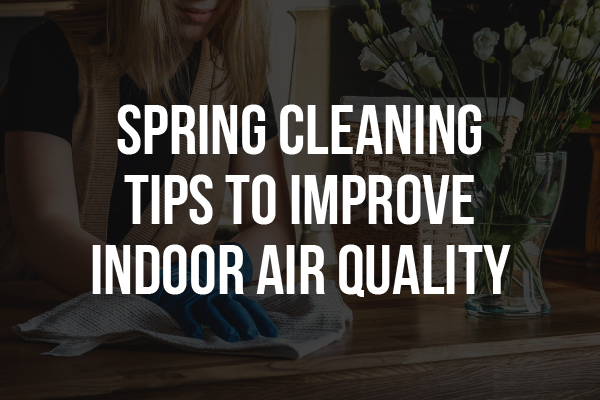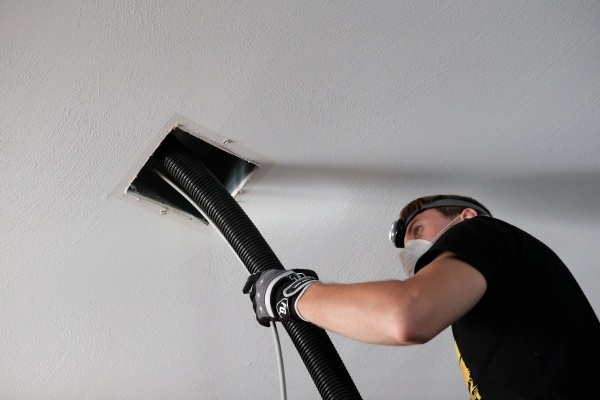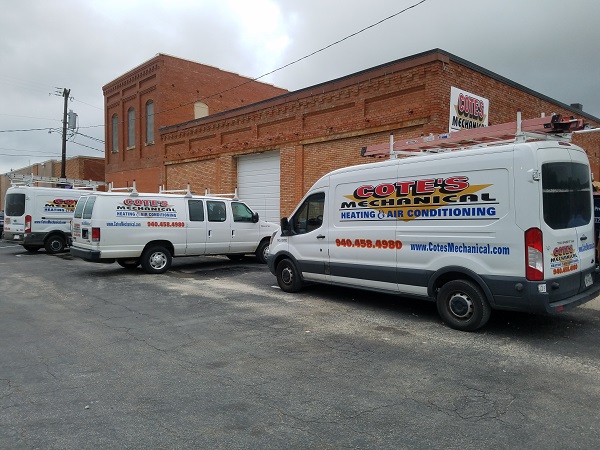
Indoor air quality is a vital part of every home. Poor indoor air quality can lead to serious short and long-term health problems.
In this blog post, Cote’s Mechanical will be going over steps you can take to enhance the air quality in your home. While using these seven tips won’t make the air in your home perfect, they can go a long way in improving your indoor air quality.
Indoor Air Quality
Different types of pollutants, some of which are incredibly common, threaten your home’s air quality. Children, elderly people, and those with preexisting conditions are especially at risk for health complications from poor air quality.
According to the EPA, several sources of pollutants that threaten indoor air quality include but are not limited to:
- Tobacco products
- Combustion appliances that burn fuel
- Too much moisture
- Some products related to maintenance, household cleaning, hobbies, or personal care
- Humidification devices, cooling systems, and central heating
Certain building materials and furnishings can include but are not limited to the following:
- Insulation with deteriorated asbestos
- Flooring, upholstery, or cabinets that are newly installed
- Products, such as furniture or cabinets, that are made from certain types of pressed wood.
In addition to sources inside your home, outdoor sources can also threaten your home’s air quality. These include but are not limited to the following:
- Pesticides
- Radon
- Outdoor air pollution
How to Improve Indoor Air Quality
We’ve compiled a list of seven things that can be done to help improve the air in your home. Please note many of these steps should only be performed by a qualified HVAC specialist.
1. Air Duct Cleaning Services

Air ducts are an important part of your HVAC system. They allow your central air unit to move air throughout your home. Air duct filters trap contaminants as the air flows through your ducts. The dirtier these filters get, the harder it is for them to do their job. Dirty filters not only negatively affect your air quality, but they can also lead to higher energy bills. Having a reputable professional regularly clean your air duct filters can prevent problems from escalating.
Signs that it is time for an air duct cleaning include but are not limited to the following:
- Unusual energy bill increases
- Pest infestations
- Dirt accumulation around vents
- Residents experiencing respiratory problems
- Mold
2. Change Air Filters
Over time, air filters will need to be changed. Generally, an air filter can last up to 90 days. Under certain circumstances, they may need to change out sooner. For example, individuals who have allergies or pets may need to have their air filters changed as frequently as every 30 days.
Work with a professional to determine how often you should have your home’s air filters replaced.
3. Have a Professional Clean your Air Conditioner Condensor Unit
The air conditioner condenser unit is a critical part of your overall air conditioning system. You might not think about cleaning your air condenser unit, but it can accumulate dirt and debris.
Dirty air entering your air conditioner puts additional strain on filters and lowers the air quality. To prevent injury to yourself and protect your air conditioner condenser unit from damage, you must have a professional clean it.
4. Properly Ventilate your Home
Cleaning products often contain harmful chemicals. Many common cleaners give off volatile organic chemicals. Try to use household cleaners that are not as toxic. If you are using household cleaners that produce volatile organic chemicals, you can open windows to ventilate an area. You can also use an entire home mechanical ventilation system to draw more fresh air into your home.
5. Air Purifier Installation
An air purifier improves air quality by taking in air, filtering out pollutants, and releasing the air out. There are many types of air purifiers available. It is important to keep in mind that no air filter is perfect. Please note: the E.P.A. advises consumers to avoid air purifiers that emit ozone. The University of Massachusetts Amherst warns that there is a possibility of ozone reacting with existing chemicals in the air to produce harmful byproducts.
Some popular types of air purifiers include the following:
- HEPA Air Purifiers: HEPA (high-efficiency particulate air) air purifiers move particles through a filter using a fan. Fibers then “catch” the particles. HEPA is a performance standard. These air purifiers catch dander, mold, pollen, and dust particles. HEPA filters do not catch gasses.
- Activated Carbon Air Purifiers: Activated carbon air purifiers help to filter gases, smoke, fumes, and odors. They use carbon media for filtering.
- Ultraviolet Air Purifiers: Ultraviolet air purifiers, a.k.a. UV purifiers, use UV light to “catch” particles in the air and take them through a filter. Please note that UV air purifiers may release ozone, which is hazardous to human and animal health.
- Ionic Air Purifiers: Ionic Air Purifiers use electricity to clean the air. Be aware that ionic air purifiers produce ozone, which is a hazard to human and animal health. There are two types of ionic air purifiers.
- Air ionizers: Air ionizers are also known as “negative ion generators.” They use a negative charge to try to get particles, such as dust, to attach to a surface. They do not use a filter like other types of air purifiers. Please note: there is a chance the particles could become attached to your lungs.
- Electrostatic precipitators: Electrostatic precipitators use a positively charged and a negatively charged plate to “catch” particles.
6. Use a Whole-House Dehumidifier
The warm and damp conditions of spring lead to higher humidity in homes. High humidity causes poor air quality and other problems. Not only is it uncomfortable, but it can also lead to mold, dust mites, and more. You can help alleviate this by installing a whole-house dehumidifier.
7. Activate Your HVAC Fan After a Cleaning
Particles and dust can be kicked up when you do a lot of cleaning in your home. By running your HVAC fan after you clean, the dust and particles will be filtered out.
HVAC Services

At Cote’s Mechanical, we take air quality seriously. We can perform an indoor air quality test at your home to determine what chemicals and contaminants are in the air. Once we know that, we can take action to improve your air quality. Let us help you protect your home’s air quality and your family’s health. We also provide many HVAC services to help make your home safer and more comfortable. Cote’s Mechanical proudly serves Denton County, Texas, and the surrounding areas.
Contact us to receive a free estimate!

